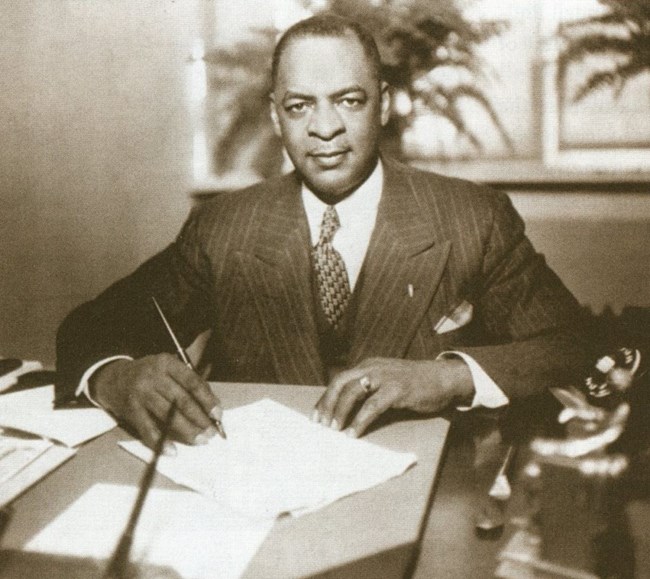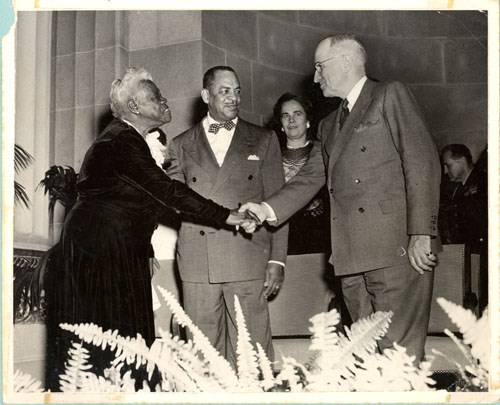
Public domain A Civil Rights Legislative TrailblazerCongressman William L. Dawson served as a U.S. Representative from Illinois from 1943 to 1970 and was a prominent African American leader during the Civil Rights Movement, playing a crucial role in advancing civil rights legislation. He, like his friend and frequent ally Mary McLeod Bethune, was known for his dedication to improving the lives of African Americans and fighting against racial discrimination. Early LifeWilliam L. Dawson was born on April 26, 1886, in Albany, Georgia. He attended and graduated from a local public school, Albany Normal School in 1905. He would go on to graduate from Fisk University in Tennessee in 1909. After graduation, he studied law at Northwestern University in Chicago, Illinois, graduating in 1912. He served in the United States Army during World War I, serving in France as a first lieutenant from 1917 until 1919. Going back to Chicago in 1920, he gained admittance to the state's bar and began his own private legal practice. From 1930-1932, Dawson would be elected as a state central committeeman for the First Congressional District and he was also elected for the Chicago City Council for the second ward of Chicago, serving from 1933 until 1939. In 1942, Dawson was elected as a Democrat to Congress. At the time, he was the only African American member of Congress. 
NPS, NABWH Friends in High PlacesDuring his time in Congress, Dawson was able to accomplish a great deal. He was the first African American to chair a standing committee in the United States Congress when he chaired the Committee on Expenditures in the Executive Departments. Additionally, he worked on several key pieces of civil rights legislation. Some notable ones included the Civil Rights Acts of 1957 and 1964, which aimed to protect voting rights and end racial segregation. He also worked on legislation to address housing discrimination and promote equal employment opportunities. This meant collaboration with other prominent civil rights organizations and leaders such as Mary McLeod Bethune and the National Council of Negro Women, Inc. (NCNW). Congressman Dawson and Mrs. Bethune had a close working relationship. They both believed in the power of education and worked to improve educational opportunities for African Americans, often collaborating on legislation to promote equal access to education and employment within the federal government. One of the most visible evidences of their working relationship and personal friendship can be seen at the Council House in the Boardroom. The Congressman gifted Mrs. Bethune and the NCNW the conference table and chairs that still occupy that very space to this day. Fulfilling his friend's request for furnishings that looked as if it they had come from the White House or Congress, this table and chairs were once used inside one of the many rooms at the United States Capitol building. The two also collaborated on cultural initiatives that celebrated African American achievements and heritage. Together, they supported artistic endeavors such as music, literature, and visual arts, showcasing the talent and creativity of African Americans. Their cultural initiatives aimed to challenge stereotypes and promote a more inclusive and diverse society. William L. Dawson served the residents of Chicago and the citizens of this nation as a congressman and civil rights champion until his death on November 9, 1970.
|
Last updated: April 13, 2024
